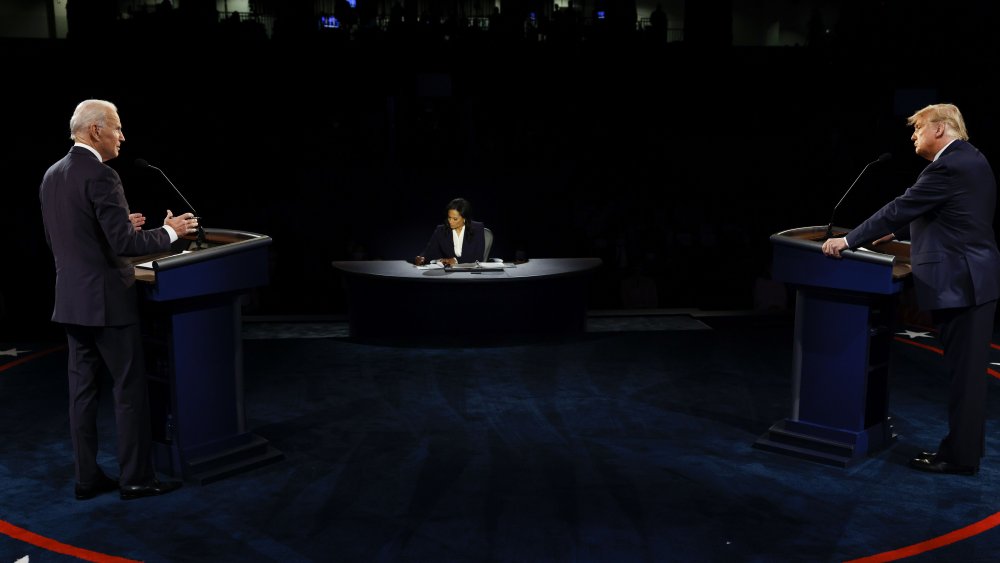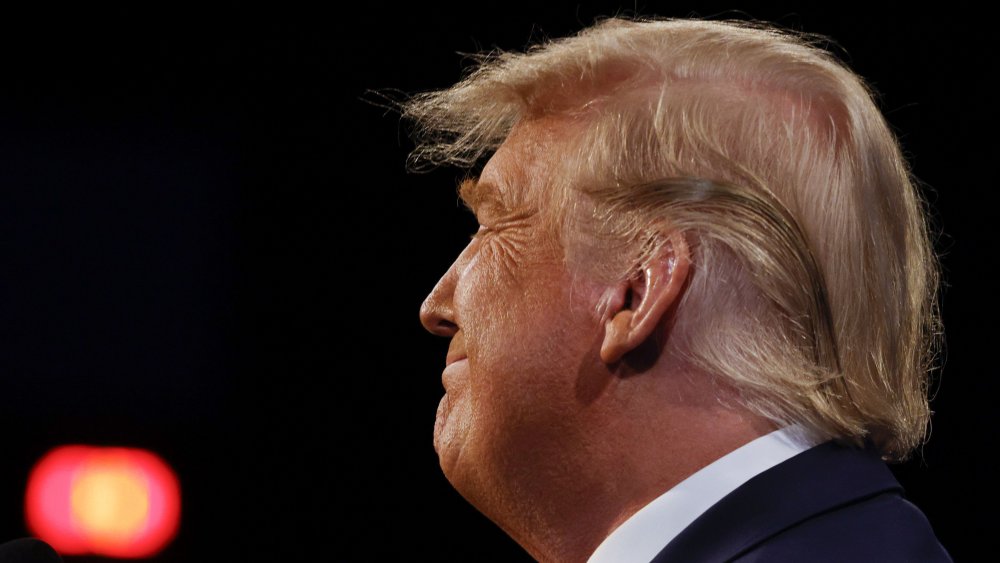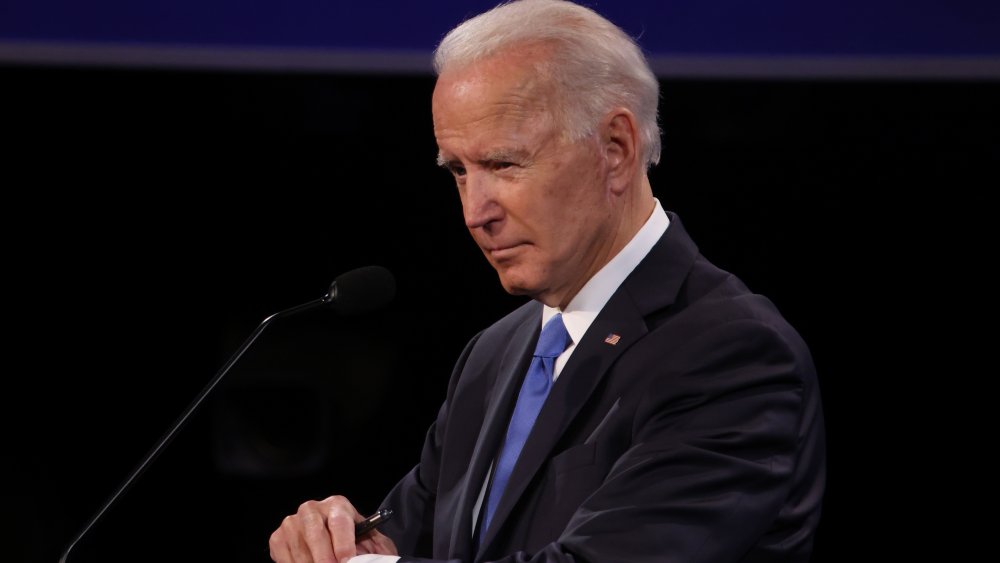The Reason These Unusual Words Are Trending After The Final Debate
There are some words we would expect to trend online after a presidential debate: words like liberal, conservative, republican, and democrat. But after last night's final presidential debate between Donald Trump and Joe Biden, some seriously unusual words are trending online, some of which aren't only words we hardly ever use, but some aren't even words we'd expect to be associated with a political debate. According to Dictionary.com, the list of these top trending words include coyote, dog whistle, fracking, Godwin's law, immune, malarkey, maraud/marauding, sovereign/sovereignty, thug, transmittal, wherewithal, and xenophobe/xenophobia/xenophobic.
So let's break down the strangest of these and how they could possible relate to the debate between the two potential leaders of the free world, shall we? Beside each word, we list the percentage by which searches for that word have increased.
Coyotes and dog whistles, oh my!
Let's look first at Coyote (645 percent). While Dictionary.com defines coyote as "a buffy-gray, wolflike canid," that's clearly not the kind of coyote being discussed in the wake of the debate. Rather, the type of coyote in question is defined as a slang term for "a person who smuggles immigrants, especially Latin Americans, into the U.S. for a fee." This word is a hot topic because of President Trump's controversial comment about illegal immigration and the separation of migrant children from their parents. He said: "Children are brought here by coyotes and lots of bad people, cartels, and they're brought here and they used to use them to get into our country. We now have as strong a border as we've ever had" (The Guardian).
Another canine-related term trending post-debate is dog whistle (381 percent), which, in this case, doesn't mean a literal whistle that allows you to summon your pup companion. Dictionary.com defines it in terms of politics as "a political strategy, statement, slogan, etc., that conveys a controversial, secondary message understood only by those who support the message." This term is trending in reference to a comment Joe Biden made during the debate, saying that Trump has "a dog whistle about as big as a foghorn," while condemning the president's past rhetoric that has been considered by many to be racist incendiary, like his statement during the first debate calling on white supremisist group The Proud Boys to "stand back and stand by" (Politico).
Nazis, malarkey, and marauding for 500, Alex
Dictionary.com defines Godwin's Law (3694 percent) as "the proposition that the longer an internet argument goes on, the higher the probability becomes that something or someone will be compared to Adolf Hitler." It's a popular search term today because during the debate, after President Trump stated he had a good relationship with North Korean dictator Kim Jong Un, Biden retorted, "We had a good relationship with Hitler before he, in fact, invaded Europe, the rest of Europe. Come on," in an attempt to prove that Trump's judgement was unsound where it came to international relations (The Washington Examiner).
Malarkey (836 percent) is defined as "insincere or foolish talk" by Dictionary.com, and the example given by the dictionary is: "He thinks that everything politicians say is a bunch of malarkey." Ironic, considering the reason this term is being searched today is that Biden called Trump's statements malarkey during the debate.
Marauding (84 percent) is defined as "going about in search of things to steal or people to attack." During the debate, Biden challenged Trump's assertion that he had done more for the Black community than anyone else by saying Trump "talked about marauding gangs, young gangs, the people who were going to maraud our cities... This is the guy who, when the Central Park Five — five innocent Black kids — he continued to push for making sure they got the death penalty. None of them, none of them were guilty of the crimes that were suggested" (The Guardian).


